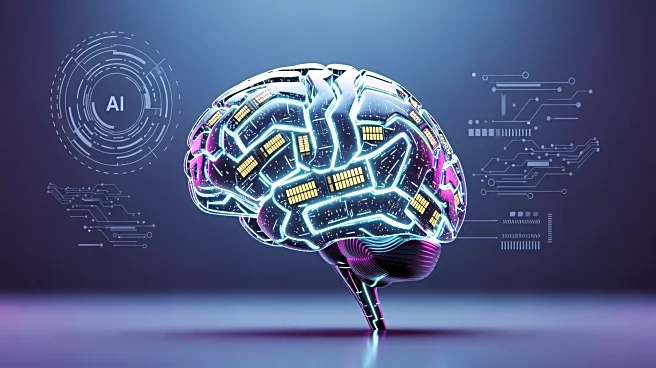What's Happening?
Anthropic has launched a new Memory feature for its Claude chatbot, aimed at enhancing user experience by allowing the bot to remember past interactions and projects. This feature is now available to all paid Claude users and can be toggled on or off.
When enabled, Claude can recall previous sessions, making it a more efficient tool for users engaged in multi-step tasks, technical builds, or creative projects. The Memory feature allows users to maintain continuity in their work without having to restart conversations. It also supports importing and exporting memory data from other accounts or sessions, including from ChatGPT, although a direct one-click import feature is not yet available due to privacy and format concerns.
Why It's Important?
The introduction of the Memory feature positions Claude as a stronger competitor against other AI chatbots like OpenAI's ChatGPT and Google's Gemini, which already offer similar capabilities. This development is significant for users who rely on AI for ongoing projects, as it enhances the chatbot's ability to provide consistent and context-aware assistance. By enabling Claude to remember past interactions, users can save time and improve productivity, particularly in professional and creative settings. This feature could attract more users to Claude, potentially impacting the market share of competing AI platforms.
What's Next?
Anthropic plans to roll out the Memory feature to Pro users in the coming days, following its availability to Max subscribers. As users begin to integrate this feature into their workflows, feedback will likely influence further refinements and updates. The company has conducted extensive safety testing to ensure the feature operates without reinforcing harmful behaviors. Future updates may include enhancements to the import/export functionality and additional integrations with other platforms to broaden Claude's utility.
Beyond the Headlines
The Memory feature represents a shift towards more personalized and adaptive AI interactions, which could have broader implications for how AI is used in various industries. As AI systems become more capable of maintaining context over time, they may play a larger role in fields such as education, customer service, and project management. This evolution raises questions about data privacy and the ethical use of AI memory, as well as the potential for AI to replace certain human roles in these sectors.















